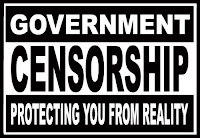Jill Abramson and The New York Times - Ethical issue
 |
| Via thewrap.com |
Summary
Jill Abramson hired a
lawyer to discuss with the management of New York Times (NYT) the discrepancies
between her salary and that of her predecessor, Bill Keller. Weeks later, with
no scandal or journalistic disaster, and a recent win of four Pulitzers at once
– a huge deal for the paper, Arthur Sulzberger Jr., NYT’s publisher, fired
Abramson abruptly. Under Abramson’s executive editorial leadership, the paper won
eight Pulitzers, strengthened its journalistic clout, increased its readership
and doubled its stock price.
One
of the reasons she was fired was because Dean Banquet, her managing editor and
successor, felt she was an insensitive executive. Banquet and Abramson had
competed for the executive editor position, but Abramson was given the job. Recently,
Abramson sought to hire Janine Gibson as digital editor, after Sulzberger and
the board already signed up on it. She set up a meeting for Gibson and Banquet
to meet together and discuss the Times’
future. But, Banquet felt offended to be left out of the hiring decision. Banquet
then complained to Sulzberger that he didn’t feel appreciated as Abramson
failed to let him understand where he fits in the Times’ hierarchy.
The
second reason is because NYT staff, especially newsroom journalists, did not
feel too good about Abramson’s leadership style. The staff thought she was
polarizing, brusque, bitchy and pushy. Mercurial is said to be a word used a
lot by the staff to describe Abramson. This a challenge continually experienced
by working women and female bosses. Natalie Nougayrede, former editor-in-chief
of Le Monde, was recently forced out of her paper for the same reason.
All
these beg the question: would Abramson have been fired if she were male? Would
her “mercurial” leadership style have been grounds enough for a fire?
Especially when NYT has a rich history of brusque and mercurial male executive
editors? We must ask ourselves if it is ethical to treat female bosses
differently from their male counterparts. Or, if it is ethical to punish women
for the characteristics we applaud and award in men?
Stakeholders
Jill
Abramson:
although silent about the firing, Abramson is majorly affected by this
incident. She is back to searching for employment and figuring the next step of
her career. She also has to deal with allegations of being difficult to work
with.
New
York Times:
with this shifted focus from its journalistic work, NYT is affected by this
incident. Much light has been placed on its patriarchal organization. I also
assume its human resources department would have a difficult time recruiting
female journalists from now on. Janine Gibson herself told friends that
she would never have considered NYT if she knew Abramson was leaving. Overall,
it’s not a good look for NYT.
Arthur
Sulzberger, Jr:
as NYT’s publisher and the one who fired Abramson, Sulzberger has been
floundering in managing this crisis. His two statements trying to debunk the
rumors that Abramson was fired for her gender have not being sufficient in
dousing the speculations. It’s worthy to consider Sulzberger’s family’s patriarchal
system of inheritance. His father,
Arthur Sulzberger, Sr., inherited the paper over his sister, Ruth Holmberg, who
left to become Chattanooga Times’
publisher instead. Only the male family
members of Adolph Ochs have been handed the reins to NYT. As much, it is not
farfetched to conclude that Sulzberger could be sexist without intending to be
sexist.
Dean
Banquet:
no matter how little his actions contributed to the firing of Abramson,
Banquet’s promotion comes with its baggage. His actions as executive editor
will be closely monitored by the public. He will also be compared to Abramson
for a while. While he is the nicer of the two, will Times be as successful during his tenure as it was under Abramson?
Only time will tell.
Female
Journalists:
already acknowledged as a minority in the industry, female journalist might
settle for the status quo and not seek leadership positions, fearing that the
breaking of the glass ceiling is a myth and not worth it. This also applies to every
woman in the work force. There have been several articles, even written by
women, suggesting that companies not hire women to leadership positions. They
postulate that when women get fired, companies will be called sexist no matter
what went on.
Solution
First,
the public and NYT must refrain from blaming Abramson. A standard ‘difference
of opinion’ would have sufficed as an explanation for the firing. Instead, Sulzberger
blamed Abramson’s leadership style and loss of newsroom support. Two, NYT needs
to be transparent about Keller, Abramson and Banquet’s total package and the
reason for the discrepancies between them. It’s a fact that Abramson’s salary and
pension was lesser than Keller’s. But, her bonus compensation, based on
company’s performance, could be higher. And, her pension could be smaller due
to some organizational cut, for all we know. All these are understandable
reasons for the discrepancies. NYT would have cleared itself of blame if it had
laid out these contingencies clearly. Three, NYT needs to be responsible to its
future hires. It needs to accept that its system is patriarchal and commit to
making it modern, more befitting of 2014.
Auletta,
Ken. “Jill Abramson, Arthur Sulzberger, and the New York Times: What Went
Wrong?” Newyorker.com. The
New Yorker, 14 May 2014. Web. 16 May 2014. <http://www.newyorker.com/online/blogs/newsdesk/2014/05/jill-abramson-and-the-times-what-went-wrong.html>


Comments
Post a Comment